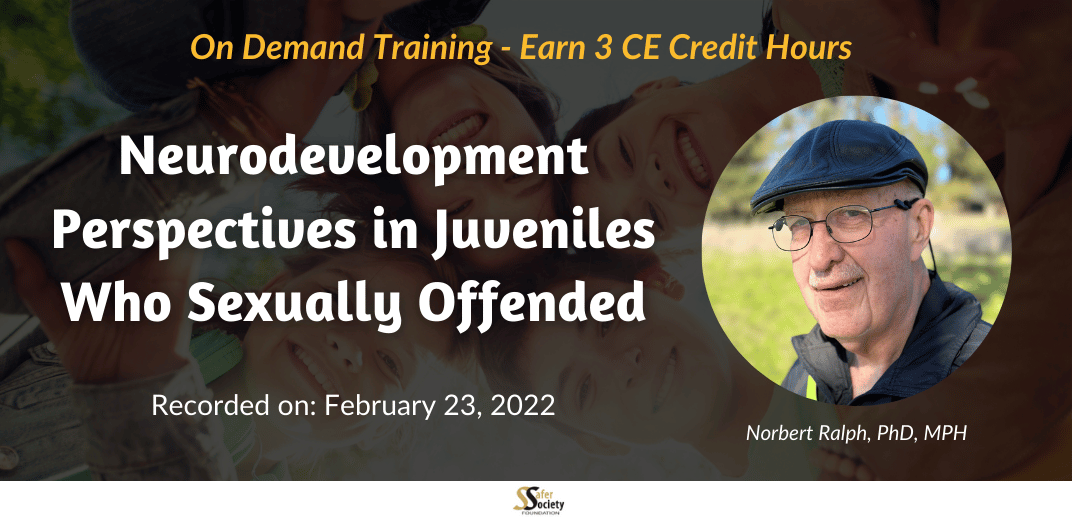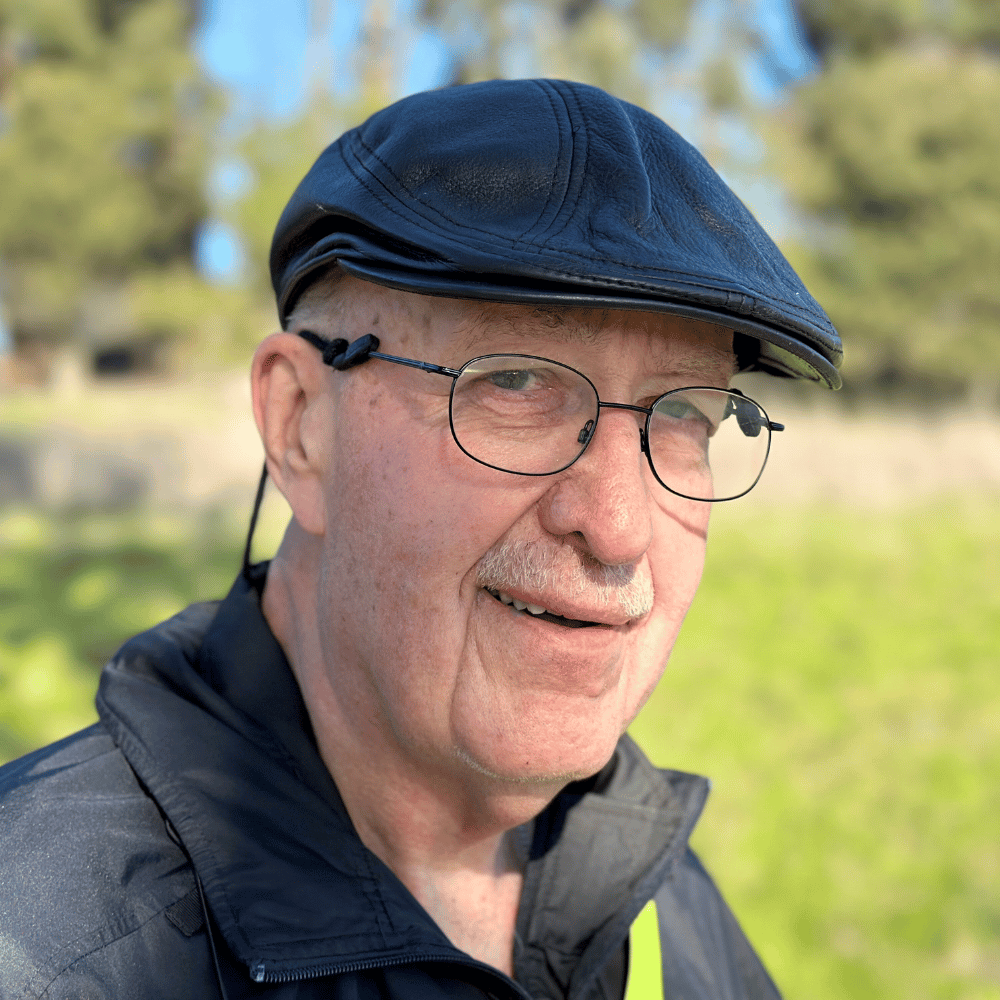
Neurodevelopment Perspectives in Juveniles Who Sexually Offended
Already purchased an On Demand training?
Click here to access your Safer Society On-Demand Training Center account.
Neuropsychology and brain research have identified developmental changes from ages 10 to 25 related to social judgment and reasoning. These changes are associated with the steep increase in delinquent behaviors, accidents, and sexually harmful behaviors during adolescence. Increased size, strength, and sexual maturity are complemented by an increase in the drive and reward centers of the brain and decreased supervision during adolescence. These changes are complemented by slower development in social judgment and “if/then” and contingency-linked reasoning. Adolescents systematically overestimate the rewards of a situation without adequate appreciation of the possible negative and harmful outcomes. Youths with delays in social judgment are at greater risk for harmful actions, including sexual behaviors. Dr. Barbara Bonner describes early adolescence as a high-risk but transitory period for harmful sexual behaviors. Adolescence is also a period for the maturation of social judgment and greater capacity for prosocial relationships. The teen brain is described by NIMH studies as only about 80% mature, and the 20% gap helps explain adolescent impulsiveness. Being prosocial adults, including regarding sexual behaviors, in part, relates to having brain maturity.
There is substantial literature regarding psychosocial maturity as a risk factor for delinquent and sexually harmful behaviors. Practical methods for assessment of this factor are presented. Assessment methods that obtain a sample of the youth’s thinking, as opposed to fixed choice responses, have a larger effect size regarding assessment. Also, practical treatment methods to promote psychosocial maturity, which are associated with positive outcomes, are discussed, including Aggression Replacement Training and Being a Pro.
In summary, the workshop presents relevant research regarding brain development and maturity, indicating that psychosocial immaturity in adolescence is a significant risk factor for general delinquency and harmful sexual behaviors and that there are evidence-based methods for assessment and treatment of this factor.
1) Identify three brain-based developmental changes in adolescence.
2) Identify three methods for measuring brain-based devotional changes in adolescence.
3) Identify three treatment methods for promoting brain-based development changes in adolescence.
4) Describe three harmful behaviors that increase in adolescence.
5) Describe three characteristics of youth who psychosocially mature in adolescence
Audience
This training is for professionals working with people who have experienced complex trauma as well as people who have perpetrated abuse. Professionals who will benefit from this training include social workers, psychologists, clinical counselors, and interested paraprofessionals.
Content Level
Disclosure
Continuing Education Approval
American Psychological Association (APA)
Safer Society Foundation, Inc. is approved by the American Psychological Association (APA) to sponsor continuing education for psychologists. Safer Society Foundation, Inc. maintains responsibility for this program and its content.
Who's Presenting

Norbert Ralph, Ph.D, MPH
Dr. Ralph is a clinical psychologist, formerly at the Juvenile Justice Center in San Francisco, and Coordinator of the Juvenile Sexual Responsibility Program. Dr. Ralph is a psychiatric epidemiologist, and neuropsychologist, who has nearly 40 publications including articles, book chapters, blogs, or books. He was formerly Associate Clinical Professor in Family Practice, University of California School of Medicine at Davis, and Lecturer and Research Biostatistician in the Program in Maternal and Child Health, School of Public Health, at the University of California, Berkeley. He is a Trainer for Aggression Replacement Training, through the California Institute for Mental Health. He is a member of the Quality Management Committee, AllCare Independent Physicians Association. He is on the Conference Committee of the Forensic Mental Health Association of California.
